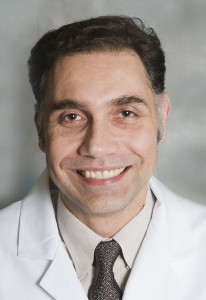Sleep on it
New study links habitual sleep deprivation to dampened immune responses
Alan Brazelton | Feb 27, 2017 | DailyUW.com
 Many college students put off sleeping properly. An average student needs about eight hours of sleep, but most college students really only sleep about six to seven hours on average, including those weekend sleep-ins. Midterms, studying, papers, and hanging out with friends tend to take precedence.
Many college students put off sleeping properly. An average student needs about eight hours of sleep, but most college students really only sleep about six to seven hours on average, including those weekend sleep-ins. Midterms, studying, papers, and hanging out with friends tend to take precedence.
However, a new study by UW researchers, “Transcriptional Signatures of Sleep Duration Discordance in Monozygotic Twins,” published in the scientific journal Sleep shows that going without proper levels of sleep for an extended period does more than make you drowsy, clumsy, and forgetful. Extended sleep deprivation distinctly inhibits the body’s immune system, reducing its ability to fight infection.
Right now, the Centers for Disease Control label American sleep deprivation as an outright public health problem, tantamount to an epidemic. A full third of Americans do not get the American Academy of Sleep Medicine’s prescribed seven daily hours of sleep for a healthy adult.
“We know this has an impact on performance, cardiovascular disease, metabolic disease, immunity, pain, mortality, and mental health,” said Nathaniel Watson, UW professor of neurology and lead author of the study. Watson also occupies director positions at the Harborview Medical Center Sleep Clinic, and the UW Medicine Sleep Center, and is president of the American Academy of Sleep Medicine.
Compared to previous studies on the medical issues associated with sleep deprivation, this study focuses specifically on sleep deprivation’s effects on the immune system with an unprecedented amount of experimental control and experimental realism, meaning the experiment was as close to day-to-day reality as possible.
The two most significant advances of this study’s experimental procedures were using identical twin pairs as research subjects and extending the study to a two-week observational period.
“We have been doing twin research for decades,” Watson said. “Twins allow control for familial factors such as genetics and shared environment that non-related controls cannot address.”
“One neat thing about using identical twins in research is that you can remove confounders due to genetic differences,” Sina Gharib said. “This is a very common practice in basic science whereby genetically identical mice are used for research, but very rarely doable in human-based research.”
Gharib is an associate professor in the UW School of Medicine and served as chief analyst of the study’s conceptual modeling and results.
Researchers also noted that their decision to extend the study beyond previous studies’ lengths of data-gathering time gave them keener insight into the collection of impacts sleep deprivation has on health.
“Most studies of the impact of short sleep on health take healthy young people, bring them into a lab, and then severely sleep deprive them and measure outcomes,” Watson said. “This is an artificial construct.”
According to him and his fellow authors, this level of imposition does not allow the full symptoms of sleep deprivation to manifest.
Eleven pairs of twins were selected for the study in all. In the everyday life of each pair, one twin got the healthy seven to nine hours of sleep daily, while the other slept for at least one hour less than their sibling.
Having such a strict selection guideline for test subjects was a challenge for the researchers, especially given that, once subjects were selected, their home environments, sleep levels, and genetic phenotypes all had to be processed and confirmed.
Thankfully, Jeffrey Delrow of the Fred Hutchinson Cancer Research Center was “instrumental,” according to Watson, in managing the subjects’ genetic profiles and evaluating their white blood cell samples.
“This is more representative of sleep deprivation in the community, where it is not severe restriction over a few days, but more likely, less severe restriction for weeks, months, or even years,” Watson said.
Indeed, the results found by the study firmly support the research group’s extensive observational period and their selective recruitment process.
“In short-term, severe sleep restriction experiments, the immune system is ramped up,” Gharib said. “Our findings are different.”
He and Watson likened the onset period of sleep deprivation to a “stress” placed on the body, where the body’s immuno-inflammatory programs and white blood cells are triggered to adapt and compensate for the body’s newfound inability to fully restore itself during sleep.
Specifically, the team noted, white blood cells express specific gene sequences in patterns that affect their behavior as the effects of sleep deprivation progress.
However, the study found the body’s immune system being overclocked, so to speak, in this way eventually takes its toll.
“Sleep deprivation over time eventually burns out the immune response and thus makes you more susceptible to infection,” Watson said. “In other words, circulating immune cells may adapt to the initial ‘stress’ induced by reduced sleep time … by suppressing the same pathways in the long-term.”
This means that extended periods of sleep deprivation can not only make existing illnesses worse for a person, but can also make vaccination less effective or the person drastically more vulnerable to mundane conditions like the common cold.
Currently, the research group is hoping to use these findings to usher in increased attention to this health problem, such as greater collaborative efforts and investigation of the repercussions of the white blood cells’ gene expression behavior.
Particularly, Gharib noted that the genetic data gained from this experiment could be useful in understanding and combating the effects of sleep apnea through research and therapy.
In any case, this research brings even more importance for adults to make sure to get their required seven to eight daily hours of sleep.
“Sleep is as important to health as healthy diet and exercise; there is no substitute for sleep,” Watson said.




